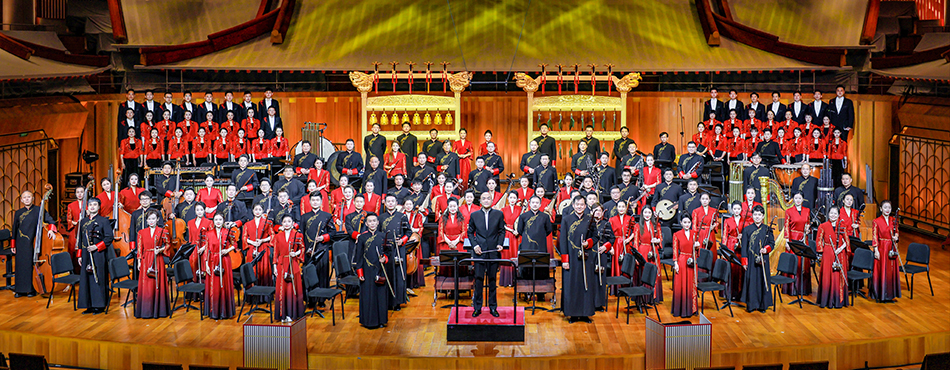According to the Lunar Calendar, the 10th February 2024 will mark the start into the New Year of the Dragon.
The 24th Grand Chinese New Year Concert will be held from 27th January to 20th February 2024!
DATES AND TICKETS
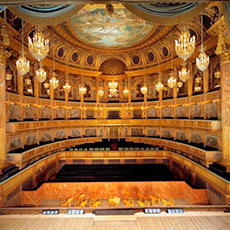
Pairs, France
Opéra Royal du Château de Versailles
31st January, 2024
Wednesday
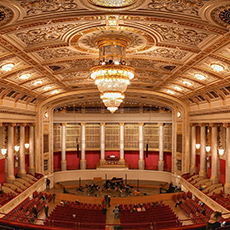
Vienna, Austria
Wien Konzerthaus
2nd February, 2024
Friday

Hamburg, Germany
Elbphilharmonie
6th February, 2024
Tuesday
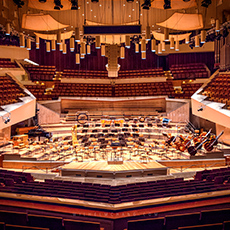
Berlin, Germany
Berliner Philharmonie
7th February, 2024
Wednesday
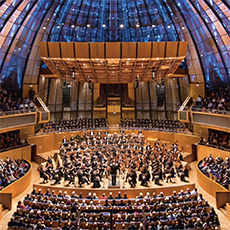
Düsseldorf
Tonhalle Düsseldorf
10th February, 2024
Saturday
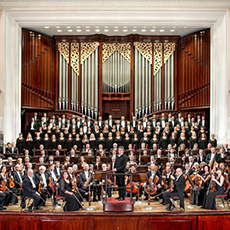
Warsaw, Poland
Warsaw Philharmonic
12th February, 2024
Monday
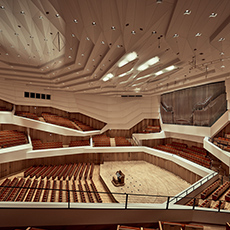
Dresden, Germany
Dresden Kulturpalast
14th February, 2024
Wednesday
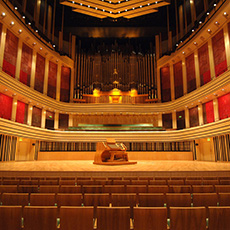
Budapest, Hungary
Müpa Budapest
16th February, 2024
Friday
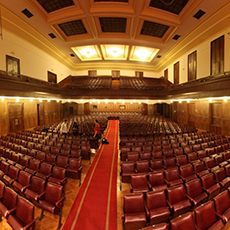
Belgrade, Serbia
Kolarac Concert Hall
19th February, 2024
Monday
CONDUCTOR (Vienna / Hamburg / Berlin): LI XINCAO
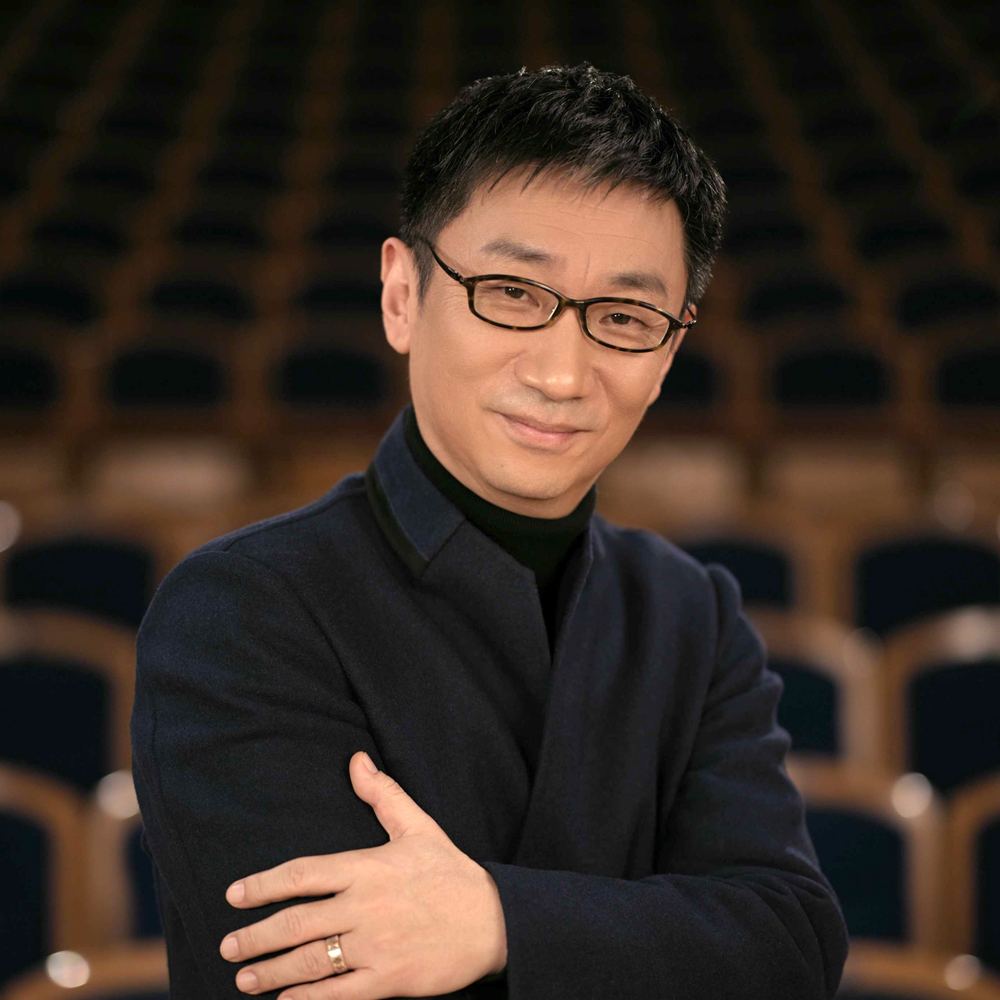
Chief Conductor of China National Symphony Orchestra
President of China Conservatory of Music Li Xincao
Li Xincao is currently the Chief Conductor of China National Symphony Orchestra, the President of China Conservatory of Music, Vice-chairman of China Musicians Association.
As the first Chinese conductor to take podium in Wiener Staatsoper, he was chosen as one of the "100Youths Inferential in China's 21 Century" by "China Youth".
He studied in Conducting Department of Central Conservatory of Music of China and Universität für Musik und darstellen de Kunst in Wien under professors Xu Xin,Zheng Xiaoying,Li Delun,Yan Liangkun,Professor L. Hager.
Li Xincao became well-known at a young age. When he was 20 years old, he conducted the former Central Philharmonic (now under the name of the China National Symphony Orchestra) and Shanghai Symphony Orchestra. In 1994, he became the Principal Conductor of China National Ballet Orchestra. Since 1999, he has become the Conductor of the China National Symphony Orchestra. From 2009 to 2016, he was invited to be Music Director & Principal Conductor of the Busan Philhar monic Orchestra in South Korea.
Over the years, Li Xincao has spread music to all five continents with worldwide recognition both in the field of symphony and opera. In particular, he has led China National Symphony Orchestra for historic visits around the world, winning enthusiastic responses and high praise from authoritative music critics from all over the world. Li Xincao is the most outstanding representative of young conductors in China.
CONDUCTOR (Düsseldorf / Dresden / Warsaw / Budapest): LIU SHA
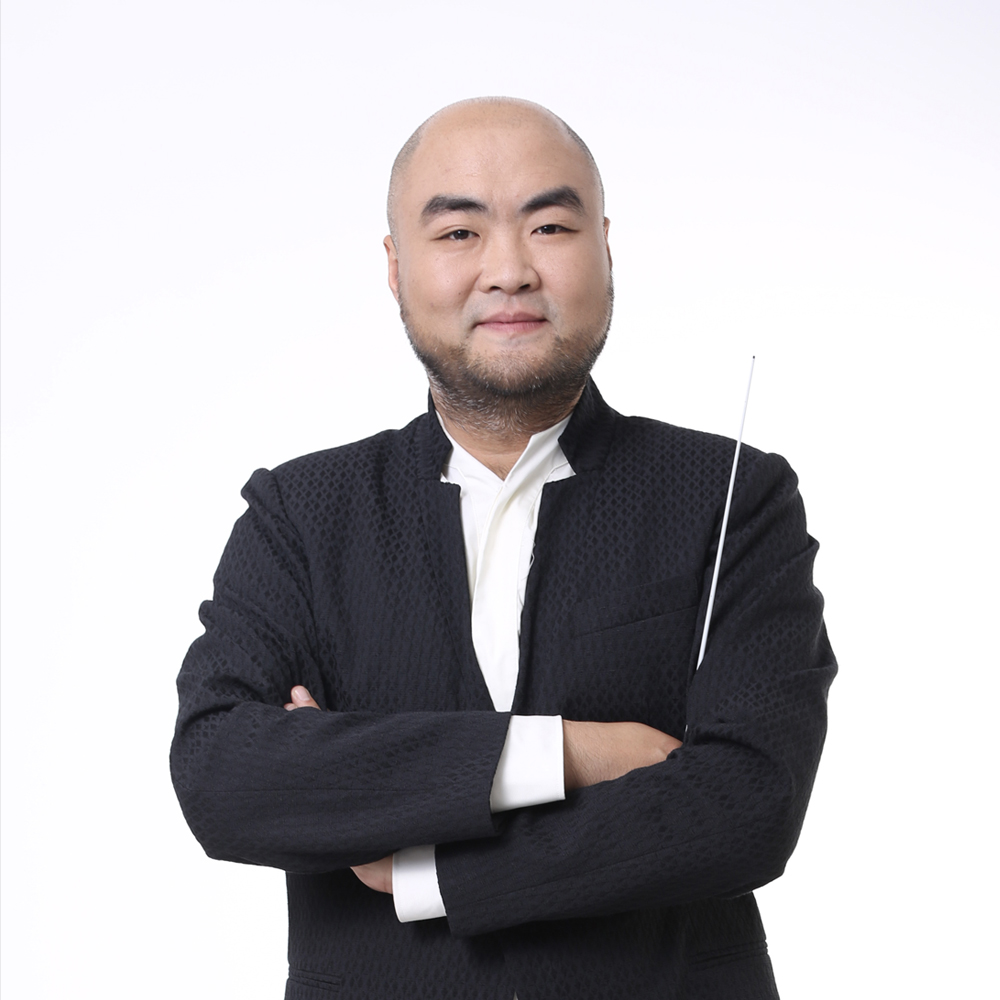
Resident conductor of the China National Traditional Orchestra, Liu Sha is widely recognized as a leading figure among the new generation of traditional orchestra conductors. To date, he has conducted the China National Traditional Orchestra on its tours to Russia, France, Korea, Switzerland, Italy, Austria, Germany and the United States. As a champion of contemporary music, he has premiered and commissioned hundreds of thousands of new works from composers of the younger generation. In the realm of symphonic music, his Russian and East European repertoire has won critical acclaim.
One of the few conductors favoured by the leading politicians in China, Mr Liu has conducted at several state visit and diplomatic occasions including APEC in 2014. He appeared in the Chinese New Year’s Concert in Hawaii in 2013 and at the Pan-Pacific Asian Arts Festival at Stanford in San Francisco. In 2015, he conducted two sold-out concerts featuring music composed by Jiang Ying at the Kennedy Centre and Carnegie Hall.
A graduate of the Central Conservatory of Music, Liu pursued further studies from 2011 to 2014 at the St. Petersburg Conservatory of Music, studying opera and symphonic conducting with Alexander Polishchuk as well as researching the Ilya Musin conducting method. Among his teachers at the master classes are Seiji Ozawa, Mstislav Rostropovich, Jorma Panula, Colin Meters and Gustav Meier.
PIPA SOLOIST: ZHAO CONG
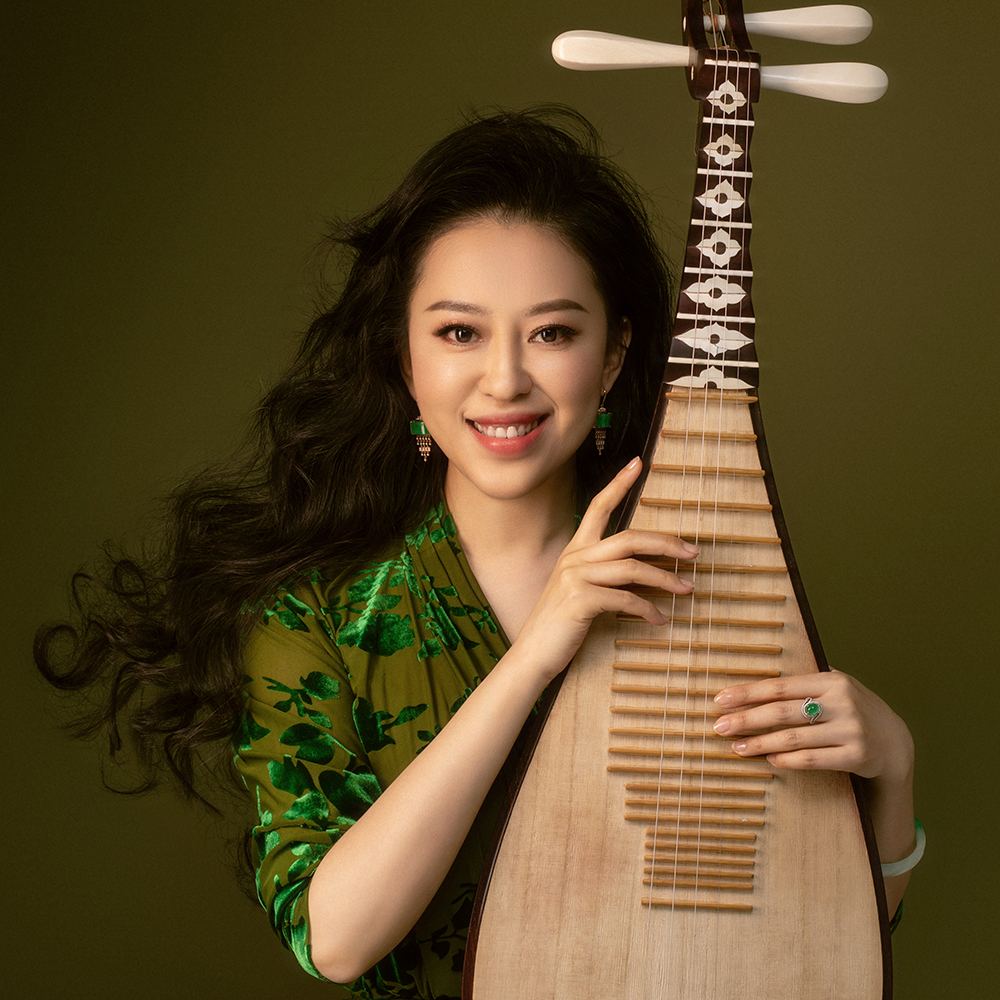
Director of China National Traditional Orchestra
Director of China National Traditional Orchestra, principal pipa soloist, a musician of state honor, National Art Fund sponsored young composer, and a well-respected figure in the international classical music world. She is committed to promoting Chinese traditional music and has dedicated herself to the promotion of pipa art for many years in the world. Inheriting tradition and daring to innovate, she has created one after another of the first and the only, becoming an outstanding representative of Chinese musicians. She is the standing committee member and director of cultural and artistic sector of the 13th All China Youth Federation, a member of the Central Committee of the National Youth Federation, an advisor for the Art Troupe of Peking University, the first artistic visiting scholar at Stanford University, and an invited artistic visiting scholar at Cambridge University. She has been certified as an "International World Music Master" in the United States. She has served as a judge for many competitions, such as the National Art Fund, CCTV National Music Competition, and International Chinese Instrument Competition. She is among the key musicians supported by the National Art Fund. She is also a specially appointed artist for China Day at Harvard University, a distinguished professor at Fudan University in Shanghai, and was awarded the State Council’s special allowance as an expert. She is a "Cultural Celebrity" and a leader in the "Four Batches" program of talents and outstanding academic leader selected by the Publicity Department of the Chinese Communist Party. She graduated from the Central Conservatory of Music in 2000, and studied art management in a senior specialized talent training program at Peking University in 2015.
Zhao Cong has visited more than 50 countries and regions, and her music has been enjoyed by over 40 foreign state leaders. She has released several solo albums, including Carmen, Listen to China, Classic Eternity, and New Language of Pipe, and composed the pipa concerto Silk Road Flying, the pipa concerto Heaven and Earth Eternal Happiness, and the pipa suite Music Resounding in the East. In 2016, at the Memories of Hangzhou concert during the G20 Summit in China, and at other important national events, such as the 2017 "Belt and Road" International Summit, she has represented Chinese music and showcased the charm of Chinese music to the heads of state from various countries. In 2019, she participated in the 70th anniversary concert of China-Russia diplomatic relations attended by the heads of state of both countries in Moscow. The Guardian commented, "Zhao Cong's perfect performance has filled Chinese folk music with hope".
GUQIN SOLOIST: YANG ZHIJIAN
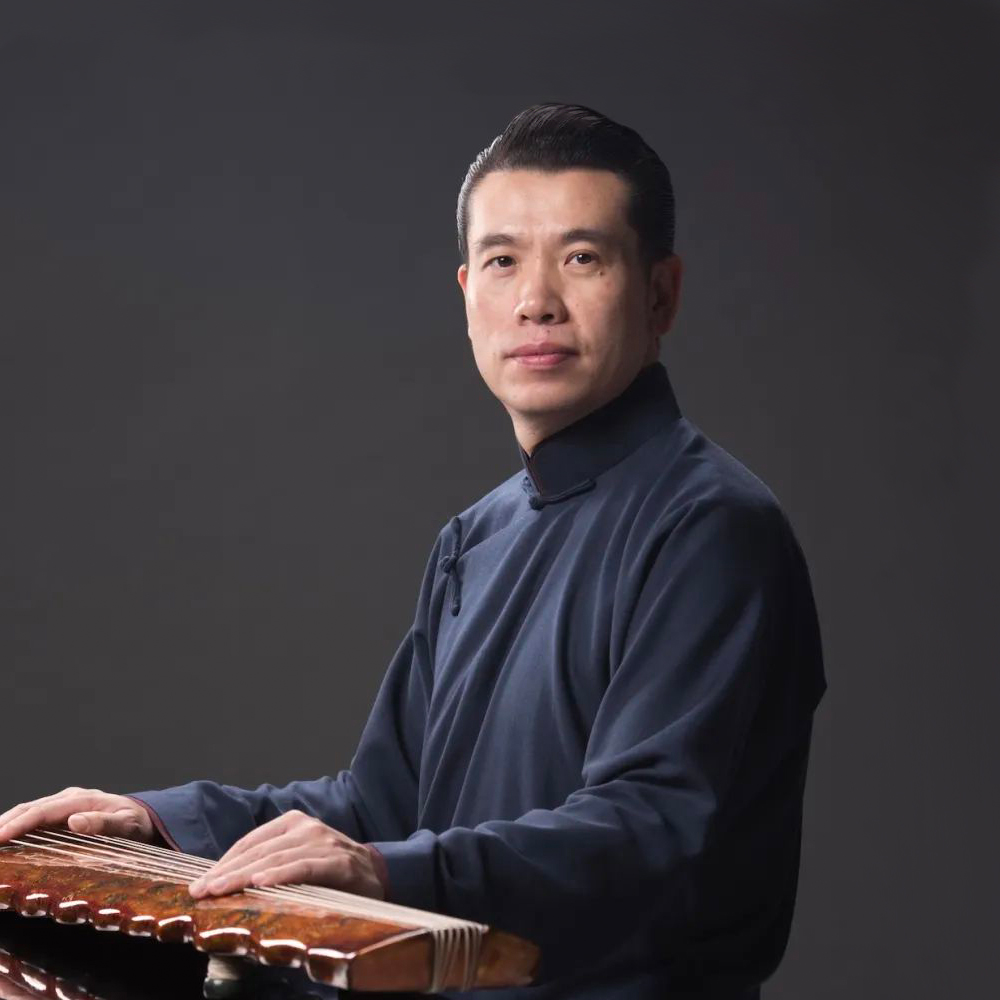
A graduate in architecture from Tongji University, Yang Zhijian is a contemporary expert in Guqin making and playing. He is a specially invited Guqin specialist, performer, and maker at the Forbidden City.
Representative inheritor of the intangible cultural heritage project "Guqin Making Techniques" in Shanghai, Yang has dedicated himself to the protection and promotion of Guqin culture. He apprenticed under two Guqin masters: Gong Yixian, a national-level inheritor of intangible cultural heritage and former president of the China Qin Society, and Professor Li Xiangting, a national-level inheritor of intangible cultural heritage and honorary president of the China Qin Society. Yang delved into the study of classic pieces and Guqin making techniques of the Guangling and Yushan schools.
Furthermore, he studied under the renowned dizi (bamboo flute) player and "Jiangnan Xiao King" Professor Dai Shuhong, devoting himself to the exploration of Guqin and xiao (vertical bamboo flute) performance art. Yang has been involved in guqin making and research for many years, successfully restoring several renowned ancient Guqins from the Tang, Song, Yuan, and Ming dynasties. The tones of the Guqins crafted by Yang are characterized by their bold, ancient, profound, and reserved qualities, making them collectible artistic treasures.
BAMBOO FLUTE: DING XIAOKUI
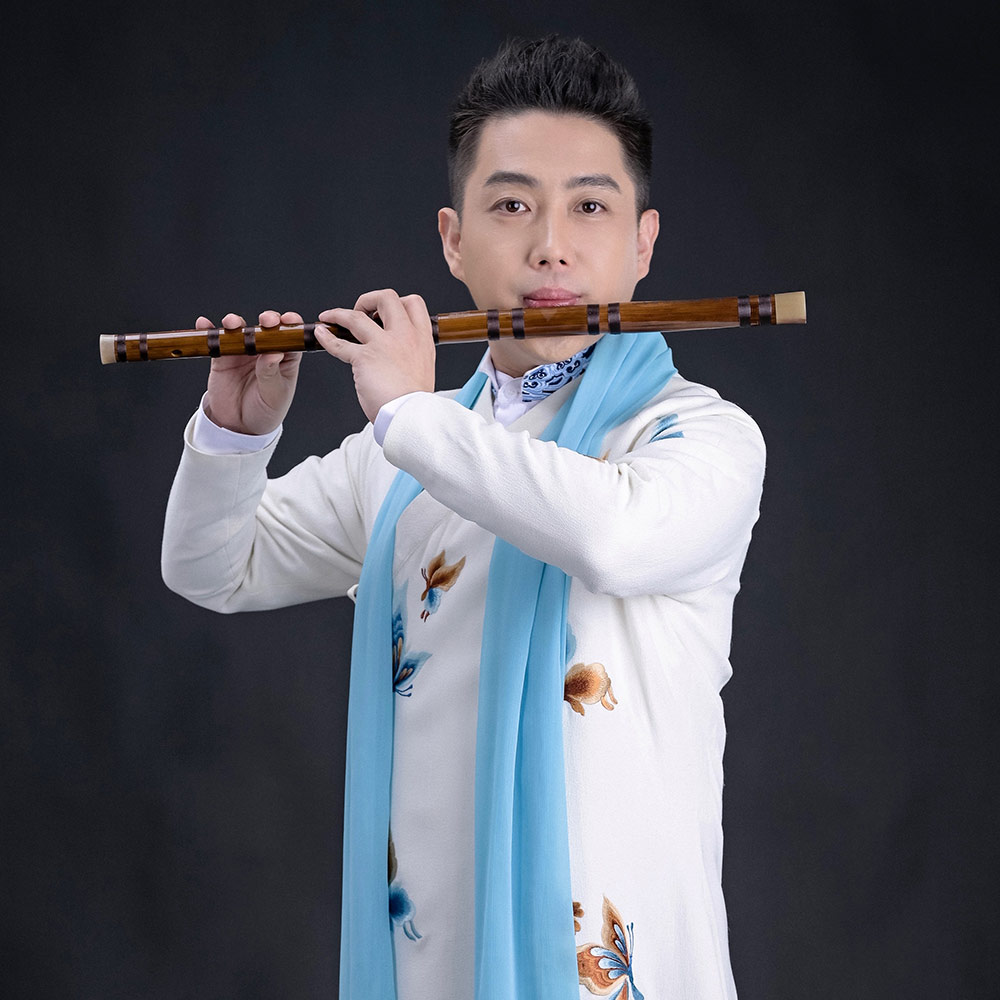
Ding Xiaokui is a wind instrumentalist in the China National Traditional Orchestra, specializing in various wind instruments such as flute, xiao (vertical bamboo flute), shakuhachi, xun (Chinese clay ocarina), paixiao (pan flute), bansuri, Irish tin whistle, and more. He has achieved notable recognition, including the Silver Prize in the Flute category at the inaugural CCTV National Instrumental Music Television Competition, the Silver Prize at the 2011 Shanghai Spring International Jiangnan Sizhu Invitational Competition, and the Gold Prize for Outstanding Ethnic Folk Ensemble awarded by the Ministry of Culture in 2013.Ding Xiaokui has accompanied the China National Traditional Orchestra on numerous international tours.
Ding Xiaokui has played pivotal roles in major productions such as "Impression of Chinese Music" and "Encounter with Chinese Music," directed by Wang Chaoge, as well as "In Search of Du Fu," directed by Yi Liming, receiving widespread acclaim.
Dedicated to cross-genre musical exploration, Ding Xiaokui has collaborated with jazz pianist Kong Hongwei to form the Golden Buddha Jazz Band. He also joined forces with the master of zhongruan (Chinese lute), Feng Mantian, to establish the Mantian Quintet, embarking on a nationwide tour from 2019 to 2021, comprising nearly a hundred performances. Their performances have garnered appreciation at various music festivals and from musicians in Europe and the Americas.
ERHU: DUAN CHAO
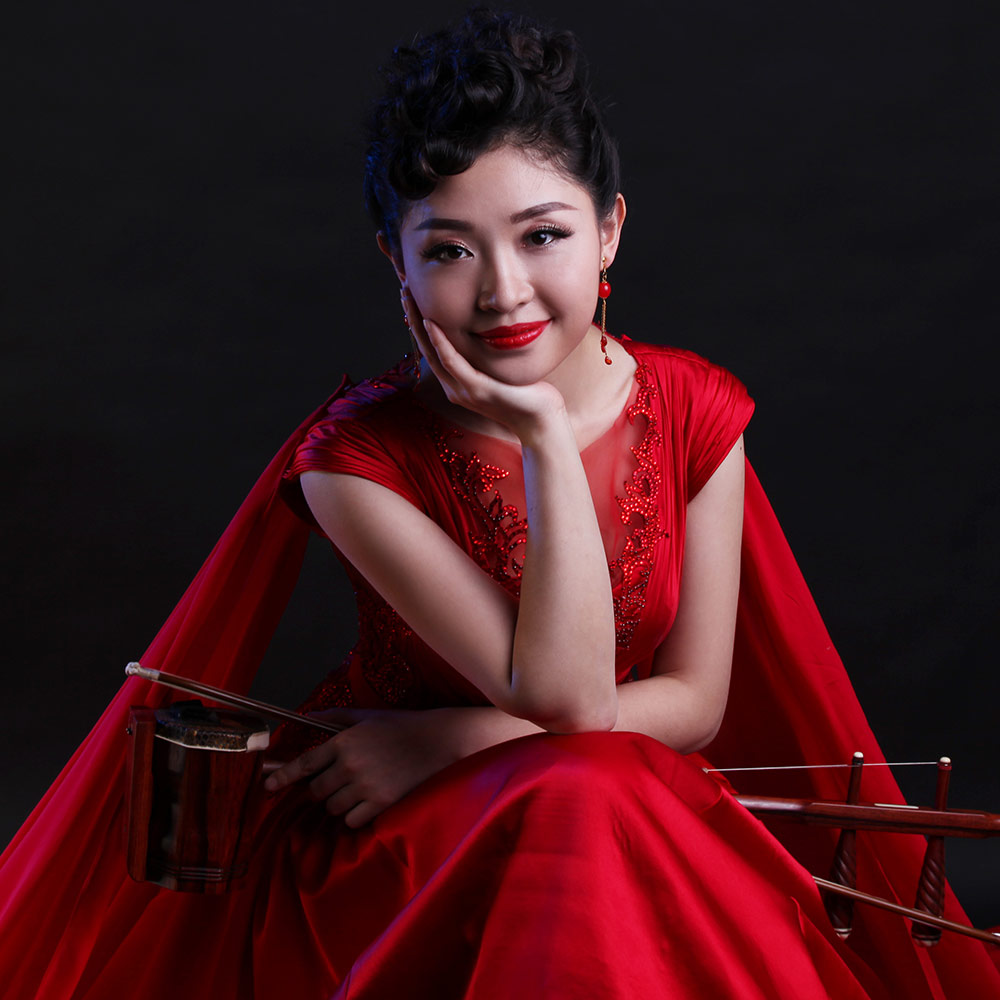
Duan Chao is a renowned young Erhu performer from the China National Traditional Orchestra. She graduated from the Central Conservatory of Music with a Master's degree in Literature. She has won numerous awards in major domestic and international competitions and has released several solo albums showcasing her exceptional Erhu skills. Having held multiple successful solo performances and large-scale Erhu concerto concerts, Duan Chao has received high praise and unanimous acclaim from audiences and critics alike.
Over the years, Duan Chao has been active on various stages both in China and internationally, performing solo at prestigious venues such as the National Centre for the Performing Arts China, the Great Hall of the People, the Forbidden City Museum, the Forbidden City Concert Hall, the Poly Theatre, and the Kennedy Center. She has played a pivotal role as an Erhu soloist in over a hundred major performances worldwide. She has toured extensively in countries including Russia, the United States, the United Kingdom, Germany, Switzerland, Austria, Greece, Spain, Egypt, Mexico, Peru, Colombia, Nigeria, Southeast Asia, and more. She has collaborated with renowned orchestras both in China and abroad, including the China National Traditional Orchestra, China National Symphony Orchestra, China Film Symphony Orchestra, North Carolina Symphony Orchestra, Taipei Chinese Orchestra, Zhuhai Chinese Orchestra, Chongqing Chinese Orchestra, and the China Youth Chinese Orchestra.
THE WOMEN'S CHAMBER ENSEMBLE "LI REN XING" and THE MEN'S CHAMBER ENSEMBLE "QING SHAN DU"

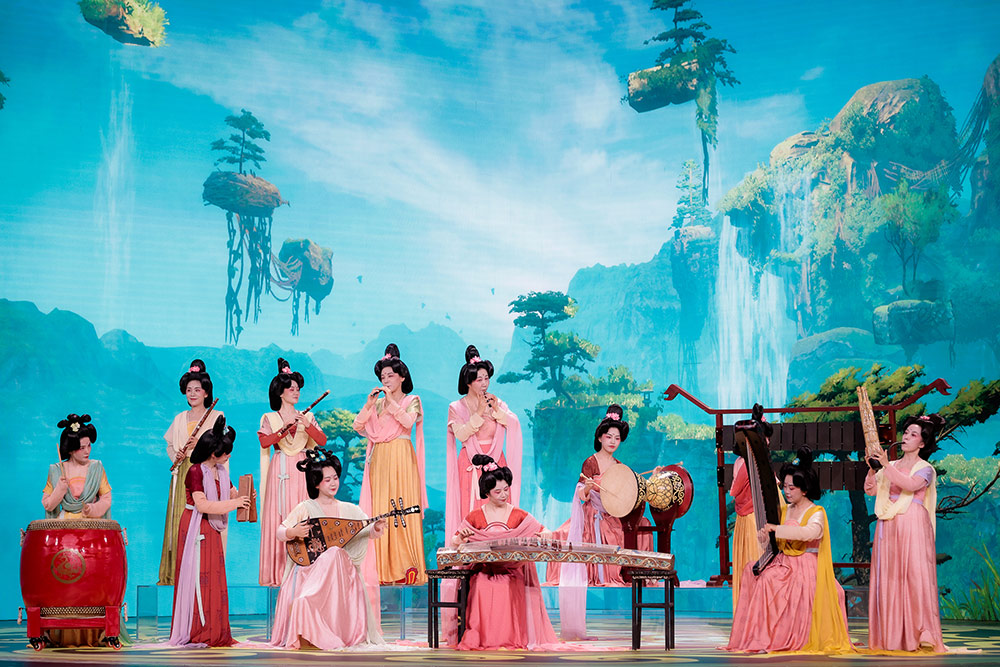
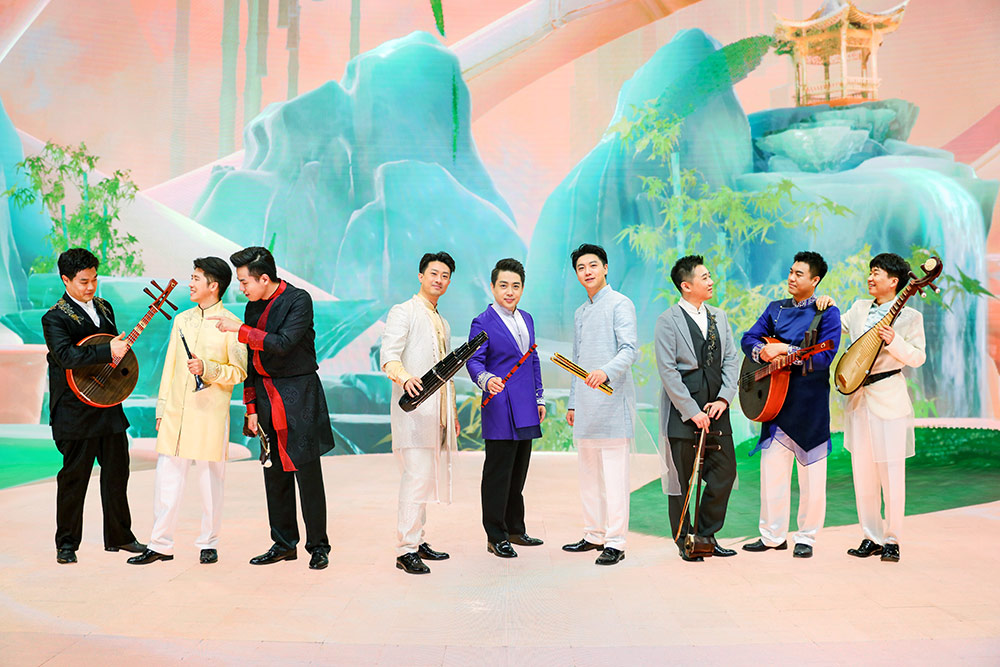
The women's chamber ensemble "Li Ren Xing" and the men's chamber ensemble "Qing Shan Du" seek to find modern expressions for traditional music, injecting youthful energy into ancient folk melodies. Established in recent years with the collective efforts of the China National Traditional Orchestra, "Li Ren Xing" and "Qing Shan Du" are two chamber ensembles committed to promoting the downsizing, diversification, and innovative development of ethnic music. They represent significant achievements in the China National Traditional Orchestra's dedication to advancing the "Youth Talent Development Program."
Comprising predominantly talented musicians born in the 1980s and 1990s, who possess both technical proficiency and artistic excellence, including some holding the title of National First-Class Performer. These ensembles have a solid foundation in musical performance and artistic expression. Their performance styles, musical compositions, and presentation formats are highly popular among young audiences. Upon their introduction, they quickly gained immense popularity and received acclaim from various quarters.
"Li Ren Xing" and "Qing Shan Du" strive to become exemplars of Chinese chamber music, upholding classical traditions while daring to innovate. They have premiered and rehearsed a considerable number of outstanding ethnic chamber music works. Through performances of classic pieces such as "Mo Li Hua" (Jasmine Flower), "Colorful Clouds Chasing the Moon," and "Rain Dropping on Banana Leaves," they continue to weave the most authentic Chinese flavors. With new compositions like "Ta Ge" (Singing and Dancing at Once), "The Story of Beijing," and "Xin Tian You", they aim to ignite the contemporary allure of ethnic chamber music in the new era. Additionally, technical pieces like "Mei Bian Si Meng" (Four Dreams by the Plum Blossom Tree) and "Tao Hua Yuan" (Peach Blossom Spring) contribute to a dialogue between tradition and modernity, inheritance and innovation, creating a fresh and dynamic musical landscape.
"Li Ren Xing" and "Qing Shan Du" are dedicated to exploring the fringes of youthful Chinese music, constantly seeking new paths for breaking boundaries and crossing genres in ethnic music. They continually challenge the limits of ethnic chamber music in terms of composition, technique, and performance, striving to enter the vision of a broader audience through diverse forms. They frequently appear on media platforms, collaboratively engage with cultural heritage institutions, museums, and art galleries, creating fantastical connections and showcasing the boundless possibilities of youthful Chinese music.
With a belief that propels the development of ethnic chamber music to new heights, "Li Ren Xing" and "Qing Shan Du" aspire to contribute their youthful vigor to the creative transformation and innovative development of traditional ethnic music in the new era. In the field of ethnic chamber music, they aim to inherit the excellence of traditions and, through innovative music and forms of expression aligned with the aesthetic preferences of the younger generation, continuously promote and elevate the culture of ethnic music.
Their goal is to allow more people to step into the colorful world of ethnic music, broadening the audience for outstanding ethnic music compositions. Through the vibrant melodies of youthful Chinese music, they seek to tell compelling stories about China and present a trustworthy, endearing, and respectable image of China to the world.
PROGRAM
About Dragon Year
"Dragon Year" typically refers to a year in the Chinese zodiac cycle that is associated with the Dragon. Each year in the Chinese zodiac is associated with one of twelve animals, and the Dragon is one of them. People born in a Dragon year are believed to have certain characteristics and traits associated with that zodiac sign. People born in the Year of the Dragon are considered to be courageous and confident, possessing strong leadership qualities, as well as being intelligent and wise. The Dragon Years are 1952, 1964, 1976, 1988, 2000, 2012, and 2024.
About Program
"The Great Harmony of Heaven and Earth: Chinese Festivals" takes the starting point of the Chinese lunar New Year, the "Spring Festival," as its beginning and uses time as its axis. It focuses on eight representative traditional Chinese festivals—Spring Festival, Lantern Festival, Qingming Festival, Dragon Boat Festival, Qixi Festival, Mid-Autumn Festival, Double Ninth Festival, and Winter Solstice. This creative concert is a musical embodiment of the festive imagery, capturing the essence of each celebration through the power of music."


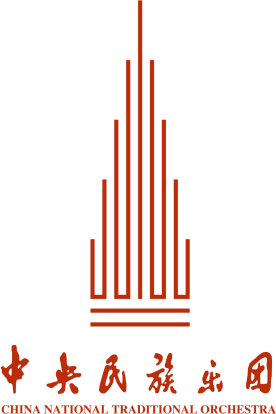
2.2.2024 Wien Konzerthaus - Vienna
6.2.2024 Elbphilharmonie - Hamburg
7.2.2024 Berliner Philharmonie - Berlin
Conductor: Li Xincao
10.2.2024 Tonhalle Düsseldorf - Düsseldorf
12.2.2024 Warsaw Philharmonic - Warsaw
14.2.2024 Dresden Kulturpalast - Dresden
16.2.2024 Müpa Budapest - Budapest
Conductor: Liu Sha
I First Half |
||
|
The Great Harmony of Heaven and Earth – Overture |
Composer: Hao Weiya | |
|
Lantern Festival: Dance of Songs |
Composer: Ma Jiuyue | |
|
Qingming: Full River in Red |
Creative composition: Zhao Zeming | |
|
Plucked Instrument and Percussion |
Composer: Li Shangqian | |
Intermission |
||
II Second Half |
||
|
Erhu and Flute Concerto Meeting on Qixi |
Composer: Wang Yunfei Erhu soloist: Duan Chao Bamboo soloist: Ding Xiaokui |
|
|
Mid-Autumn Festival: Autumn River Moonlit Night |
Composer: Hao Weiya | |
|
Double Ninth Festival: Flowing Water |
Composer: Du Yong Guqin: Yang Zhijian |
|
|
Winter Solstice: Blessing and Longevity |
Composer: Zhao Cong Pipa soloist: Zhao Cong Orchestration: Yin Tianhu |
|
|
Spring Festival: Chinese Festival |
Composer: Wang Danhong | |
